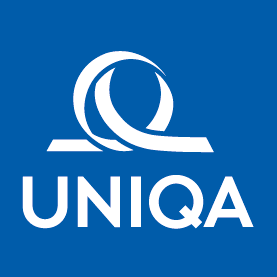6. Risk report
6.3. Challenges and priorities in risk management for 2017
Challenges
Low interest rate environment
The period of low interest rates continued also throughout 2016, with rates falling to historically low levels in some cases. This situation has a particularly marked effect in life insurance. Depending on the investment strategy, the persistently low interest rates can lead to a situation in which the income generated is insufficient to finance the guarantees made to policyholders. The topic of low interest rates continues to be of concern to the entire European insurance industry and is leading to intensive discussions about how insurance companies can ensure that customer options and guarantees (in both existing and new business) are financed over the long term. Significant measures taken by UNIQA within the defined life strategy have been to focus on implementing the ALM approach including stringent management rules (e.g. regarding the management of profit participation) and to provide continuous portfolio management to support the new business strategy in the personal injury insurance business.
Supplementary reserves to meet long-term liabilities
One specific issue is the requirements (which vary from country to country) to establish supplementary discount rate provisions, as determined by the relevant local financial accounting regulations in case of a low interest rate environment. As at 31 December 2016, UNIQA had set aside a special provision in the amount of € 100.2 million (a € 32.6 million addition) in its Austrian companies, as there is a statutory requirement in Austrian accounting regulations to make this special provision. This special provision in the local accounting is to be seen alongside the liability adequacy test (LAT) to check whether the provisions in the IFRS financial statements are adequate. Depending on the interest rate situation and the resulting planning of investment income, there is the fundamental risk in the future of a potential provision requirement as a consequence of the LAT. Following positive development of the underwriting performance in 2015 in the property and casualty area, revenue continued to stabilise in 2016.
This development was also supported by competitors exiting or withdrawing from the market, with an associated easing of competition in individual markets. Despite this positive development it is expected that price competition will persist in the coming years, particularly in the Central European markets. As a result of various group initiatives the premium revenue in the property and casualty segment is expected to continue to rise. The settlement result also made a positive contribution to earnings in 2016. The risk of potential settlement losses should continue to fall steadily in future as a result of further efforts in the area of claim reserves, along with a gradual expansion in reserve monitoring.
Investment programme
Modernisation of the IT landscape
One of the most important and key projects is the modernisation of the UNIQA Group’s entire IT management and benefit systems. . The portfolio management and benefit systems currently in use have largely reached the end of their useful lives. UNIQA is therefore planning a full modernisation of its IT systems. The actual preparations for this began in 2016 and the start date for implementation is scheduled for the first quarter of 2017. This programme involves modernisation of the most important insurance software and thereby allows the company to respond to the constantly changing competitive environment and meet customer needs and effectively manage the products in the modern insurance market. IT modernisation will therefore be the UNIQA Group’s greatest challenge for the next few years in terms of scope, duration and complexity. The level of investment required (including for migration of the existing systems) in UNIQA’s six largest markets is estimated to be in the range of € 350–450 million (over a period of ten years). Expenditure of € 115 million was budgeted in the financial planning for 2016–2020. The risks and difficulties of remaining on budget are well-known from knowledge of other system modernisations carried out in the industry. In addition to a best estimate the Group Management Board also exposed the business case to two scenarios diverging from this. Further analyses took place as part of the ORSA.
Digitalisation
UNIQA is currently working on implementation of a target operating model for Austria, to enable the IT modernisation project to be implemented successfully. Processes for handling of business transactions have been influenced by mergers and takeovers since 1999, resulting in a highly complex process landscape with lots of dependencies. The project for implementation of a target operating model transforms the handling of business transactions to a two-stage logic: Level 1 cases will be only processed either automatically or by a service company in Nitra, Slovakia. Level 2 cases will be processed in central units under the responsibility of the Board members in charge of life and/or property and casualty business. The material risk in this project involves maintaining stable business operations.
Modernisation of processes is essential if UNIQA is to remain innovative and able to respond to the wishes and needs of customers and owners. This necessarily also involves the world of digitalisation towards which we are making great strides. There is increasing focus on issues surrounding cybercrime, phishing attacks and data theft. UNIQA has already taken precautions to cover the risk of data security. Continuous ongoing development of the security measures is, however, essential and is supported accordingly by the Group Management Board (“tone from the top”).
Operational risk
UNIQA counters operational risks, such as may arise through failures in internal processes or unsatisfactory conduct on the part of employees or through other system-related external incidents, using an internal control system (ICS). Essential processes – from a regulatory and corporate point of view – are mapped in the ICS and matched with appropriate monitoring controls and measures, in order to minimise or exclude potential risks.
Priorities
UNIQA is paying greater attention to further development of future IFRSs (IFRS 17 and IFRS 9). The major changes expected in the assessment (balance sheet as well as income statement) of the insurance business require an adequate lead time in order for the content and process-related challenges to be implemented accordingly. Despite UNIQA’s good preparations within the scope of Solvency II, we still expect that significant additional effort will be required in order to be able to meet the upcoming IFRS requirements. To this end the results of the initial studies and workshops in 2016 will be tracked for the next few years, using a further development plan which evolved from these.
The Group Management Board also decided to sell the 99.7 per cent holding in the Group company UNIQA Assicurazioni S.p.A. (Milan, Italy) in a resolution dated 2 December 2016 following approval by the Supervisory Board. The sale price is around € 295 million. The sale includes UNIQA Assicurazioni S.p.A. (Milan, Italy) and its subsidiaries operating in Italy UNIQA Previdenza S.p.A. (Milan, Italy) and UNIQA Life S.p.A. (Milan, Italy). The sale of the Italian companies is classified as a discontinued business line. The assets and liabilities associated with the discontinued business line are stated in the Consolidated statement of financial position under the assets and liabilities in disposal groups held for sale. The profit and loss of the discontinued business line is presented in the Consolidated Income Statement under the item “Profit/(loss) from discontinued operations (after tax)”. The closing of the sale is expected in the first half of 2017 once all necessary official approvals have been obtained. The transaction has a significant effect on UNIQA’s economic equity ratio in particular. The reduction in the capital-intensive life insurance business in Italy is having a prolonged positive effect in particular against the background of sustained low interest rates. As already mentioned under activities for 2016, the merger of the UNIQA insurance companies operating in Austria had resulted in postponement of the approval application for the partial internal model for property and casualty insurance to 2017. High priority is accordingly being assigned to the approval procedure for the partial internal model and the necessary resources associated with this, so that the model can be used to assess the regulatory solvency position for the 2017 year end.
As of today UNIQA does not see any direct risk which could represent a risk to the Group’s continued existence.

